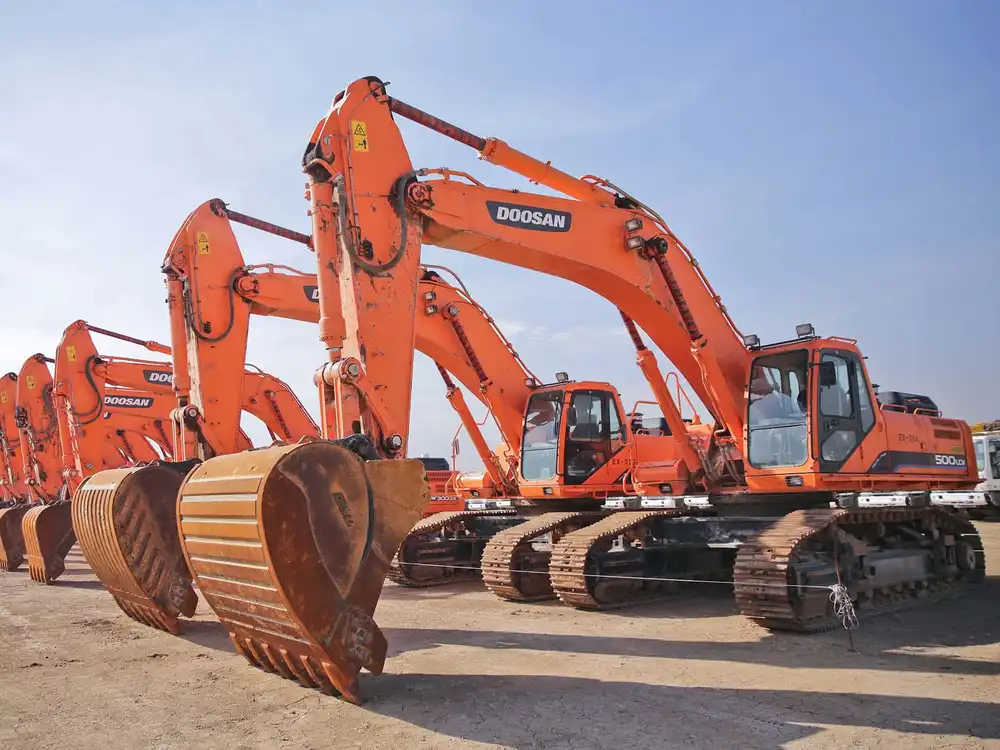In the realm of construction and earthmoving, the selection of heavy machinery plays a pivotal role in determining the success and efficiency of a project. Among the arsenal of construction equipment, excavators stand out as versatile workhorses, capable of handling a myriad of tasks. Achieving harmony between project needs and excavator capabilities requires a keen understanding of the art of excavator selection. In this guide, we delve into the key considerations that contribute to the symphony of heavy machinery harmony.
Define Project Requirements
The foundation of excavator selection lies in a clear definition of project requirements. Before delving into the world of heavy machinery options, thoroughly assess the scope of work. Consider factors such as the size of the project, the type of material to be excavated, and the depth and reach required. This initial step establishes the parameters for selecting the right excavator.
Choose the Correct Excavator Type
Excavators come in various types, each tailored to specific tasks. Mini excavators excel in confined spaces and smaller projects, while larger excavators are suited for heavy-duty applications. Choose the excavator type that aligns with the scale and demands of your project, ensuring optimal performance.
Evaluate Excavator Size
Size matters in excavator selection, and finding the right balance is essential. Consider the available space for maneuvering and the scale of your project. Opting for a smaller excavator may be suitable for confined spaces, while larger projects may demand a mid-size or full-size excavator to handle the workload efficiently.
Understand Excavator Attachments
The versatility of excavators lies in their ability to accommodate various attachments. Trenching buckets, hydraulic hammers, and grapples are just a few examples of attachments that enhance the functionality of an excavator. Understanding the available attachments and their compatibility with your project requirements is crucial for maximizing excavator capabilities.
Consider Fuel Efficiency
Fuel efficiency is not only environmentally responsible but also contributes to cost savings. Evaluate the fuel consumption of different excavator models and consider factors such as engine efficiency and emission standards. Choosing a fuel-efficient excavator ensures sustainable operation throughout the project.
Operator Expertise
The best excavator can only perform optimally in the hands of a skilled operator. Ensure that the operator handling the equipment is well-trained and experienced with the specific model you’ve chosen. Operator proficiency contributes to efficient and safe project execution.
Evaluate Maintenance Requirements
Regular maintenance is the key to keeping excavators operating at peak performance. Evaluate the maintenance requirements of different models, considering factors such as ease of access for servicing, availability of replacement parts, and manufacturer support. Proactive maintenance ensures minimal downtime and longevity of the equipment.
Cost Considerations
While selecting the ideal excavator is crucial, it’s equally important to consider the overall cost implications. Establish a clear budget that includes not just the cost of the excavator but also factors in expenses such as transportation, fuel, maintenance, and operator fees. Striking the right balance between performance and cost ensures a harmonious investment.
Conclusion
The art of excavator selection is a symphony of considerations that harmonize project needs with heavy machinery capabilities. By defining project requirements, choosing the correct excavator type and size, understanding attachments, considering fuel efficiency, prioritizing operator expertise, evaluating maintenance requirements, and factoring in cost considerations, construction professionals can achieve a perfect orchestration of heavy machinery harmony. Navigate the world of excavator selection with finesse, and witness the seamless integration of the right excavator into your construction project’s melody of success.

